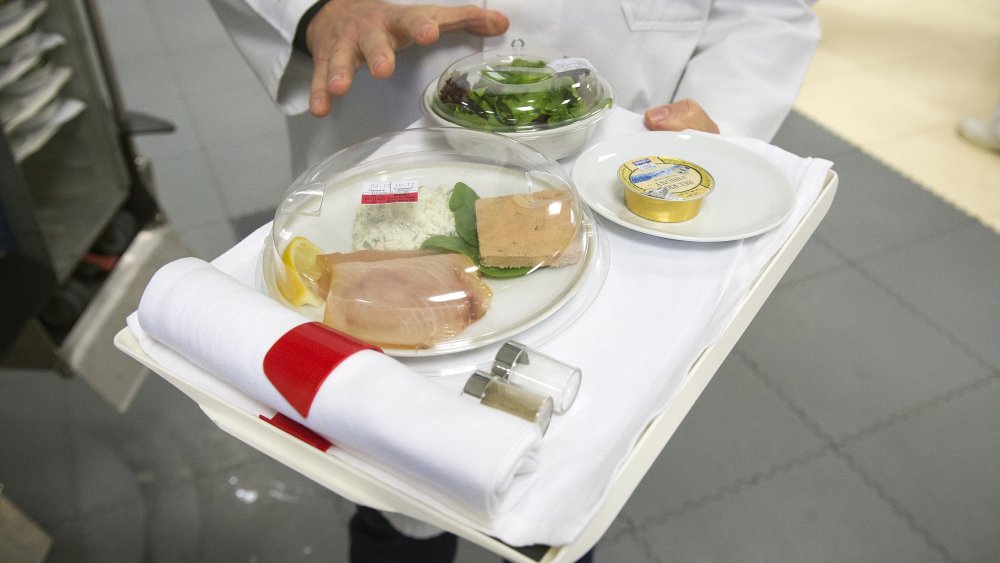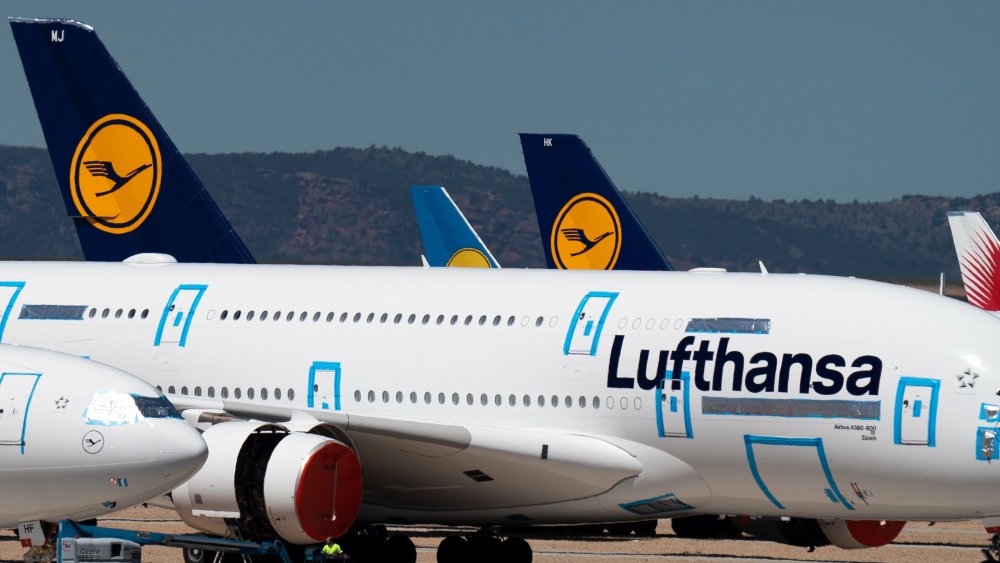Airplane Food Usually Tastes Bad. Here's Why
Most people see airplane food and think of slop. Airlines try their best, but unless you're in the most expensive airline seat, airplane food often brings joyless dining experiences. There's a reason for that, and part of the blame lies with the traveler.
Airlines rely on different ways to keep meals fresh before serving, and after all, they are serving hundreds of people stuck in a flying metal tube. Conditions in an airplane are not exactly ideal for cooking. According to Time Magazine, airlines cook meals on the ground beforehand, then freeze them. Right before mealtime, the food is reheated in the galleys, in less than ideal conditions. If you've ever reheated food, you know it can be dry and even taste different from freshly cooked food, so it's no surprise airplane food behaves the same.
Airlines also try to make up for the food being dry by dousing it in sauces. However, the meals themselves are not the only reason for airplane food tasting bad.
The altitude changes your tastebuds
Condé Nast Traveler reports that among the many ways air travel changes your body, the altitude changes the way you perceive taste. Cabin pressure and dry cabin air contribute to numbing your taste buds while on a plane. Your ability to taste saltiness and sweetness drops 30 percent.
Airlines have caught on, and so they have started to change how their food is made — for all passenger classes. Lufthansa, Delta Airlines, and Cathay Pacific are a few airlines that have all taken steps to improve their food, per Time. Lufthansa and Delta started to add bolder oils and seasonings to meals, while Cathay Pacific developed beer that is made with honey and longan berries, specifically to taste good on flights.
So why does airplane food taste bad? Loss of taste, combined with reheated food. Don't worry, though: Even in economy class, the food is bound to become better tasting.

